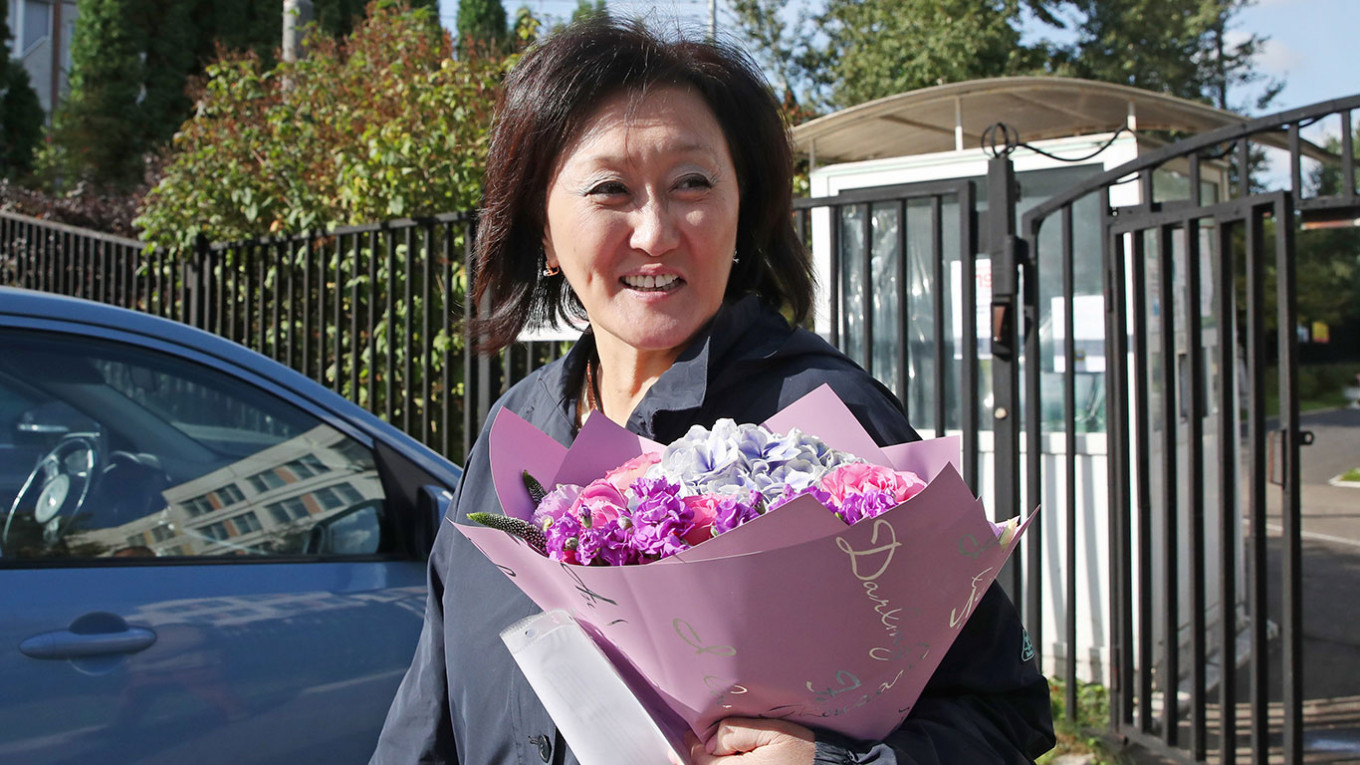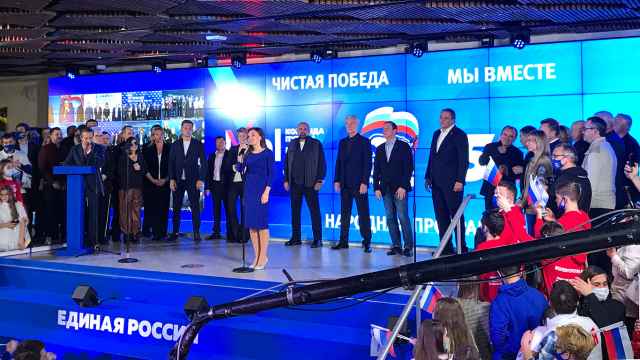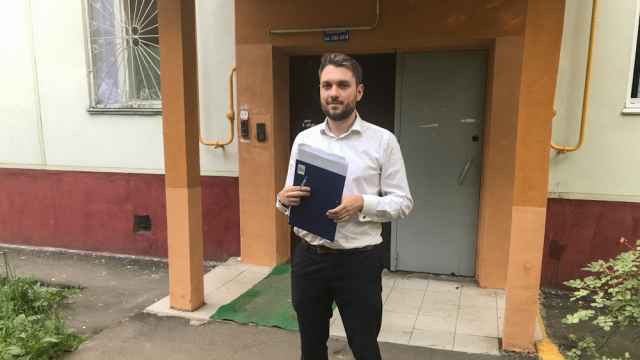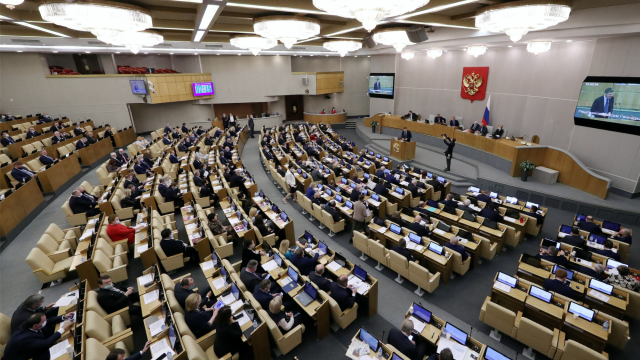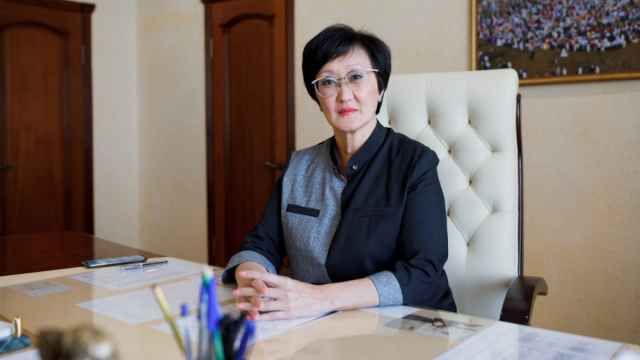Russia held controversial parliamentary elections last weekend that were marred by claims of mass fraud in handing the ruling United Russia party a supermajority in the State Duma, Russia’s lower house of parliament.
Though final results are expected Friday, election officials have counted 100% of the ballots and most winners have already been named.
Here are some of the most well-known faces who won Duma, local assembly and gubernatorial races, or shook things up.
Sardana Avksentiyeva, who was the first female mayor of the eastern Siberian city of Yakutsk until her resignation earlier this year, ran for the Duma as a member of the recently formed New People party.
New People, which is chaired by direct sales giant Faberlic founder Alexei Nechaev, scraped a 5% vote margin to gain several seats in the 450-member Duma.
Avksentiyeva has said she resigned as mayor of Yakutsk for health reasons, though unconfirmed reports linked her sudden departure to pressure from the authorities.
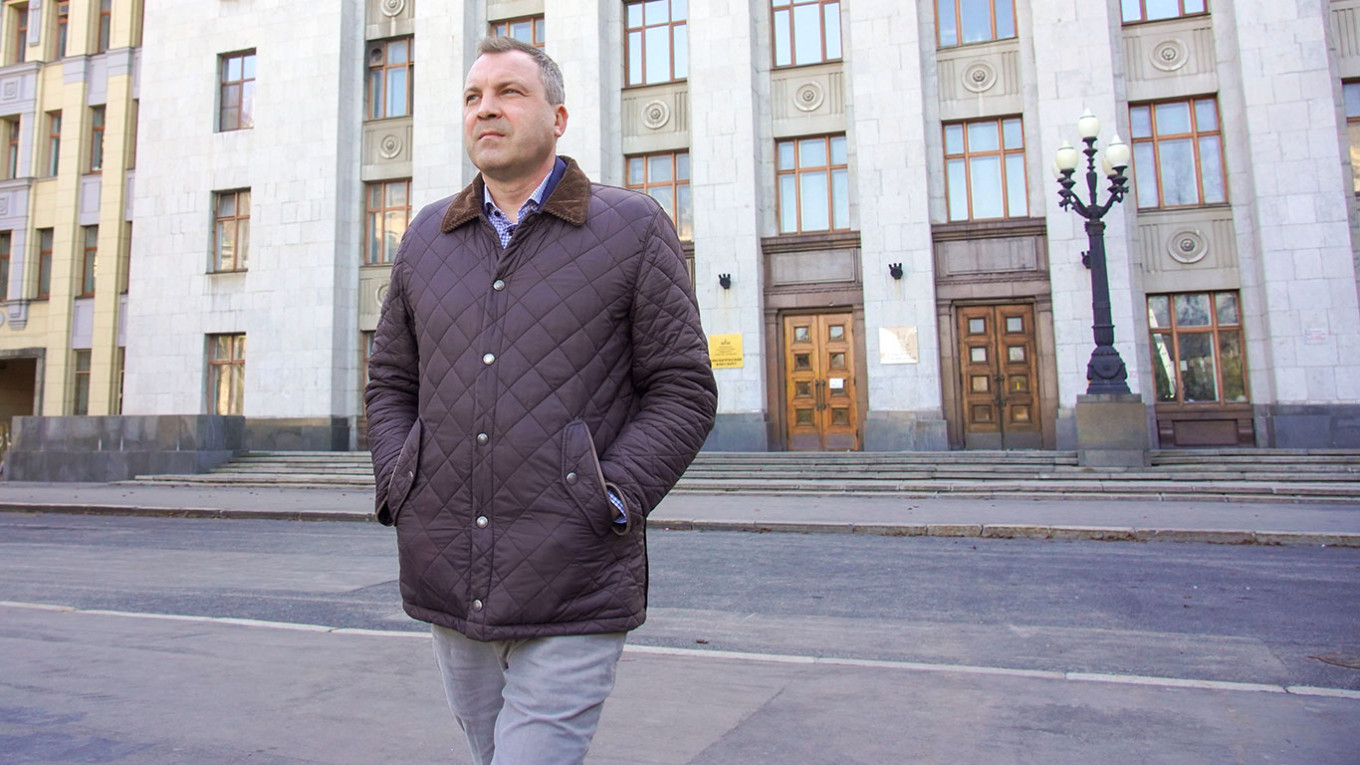
Yevgeny Popov is best known to the Russian public as the co-host of a Western-bashing talk show with his wife Olga Skabeeva on the state-run Rossiya TV broadcaster, one of the most-watched channels in Russia.
Popov, a United Russia member who began his journalism career with Rossiya in the Russian Far East in the early 2000s, will now switch careers after beating a Communist Party challenger to win 35.17% of the votes in Moscow.
That vote, like others in Moscow’s single-mandate districts, came under fire after non-United Russia candidates saw their leads reverse as soon as election officials began releasing the results of online voting, which handed United Russia members every district in the capital.
Critics also raised suspicion over a days-long delay in the publication of the remote voting results, leading election officials to announce a recount — albeit with no legal force to change any outcomes. Election officials say they plan to extend remote voting to all 85 Russian regions in future, provoking disapproval among critics of e-voting.
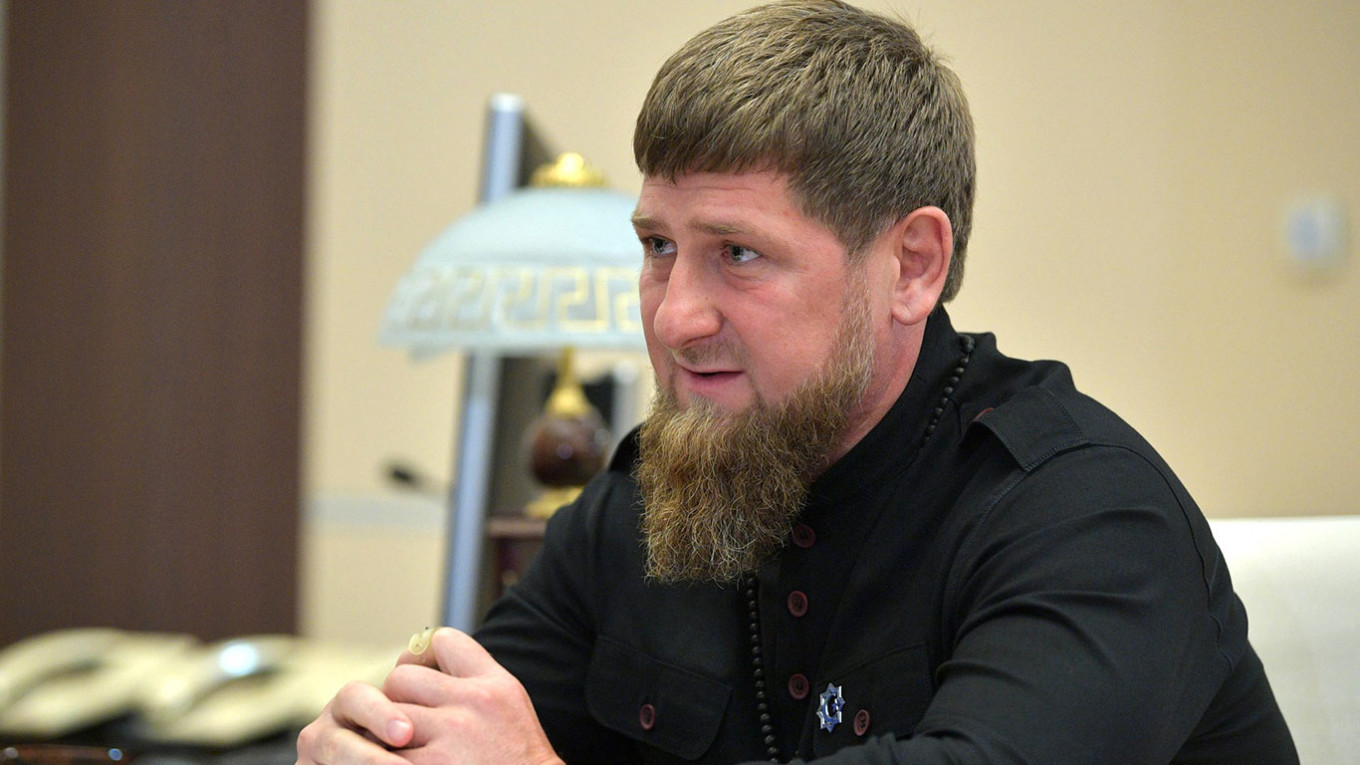
Ramzan Kadyrov, the strongman leader of southern Russia’s republic of Chechnya, will extend his 14-year rule over the conservative Muslim-majority region after sweeping the ballot with 99.7% of the votes.
Kadyrov and several of his associates are under U.S. sanctions for human rights abuses, including the alleged kidnapping, torture and murder of Chechen men suspected of being gay and the 2015 assassination of prominent opposition figure Boris Nemtsov near the Kremlin. Critics have accused Kadyrov of orchestrating reprisals against opponents outside Chechnya’s borders after several high-profile murders of Chechen activists rocked European capitals in recent years.
Kadyrov is seen as enjoying carte blanche in his repressive rule from the Kremlin in exchange for his loyalty to President Vladimir Putin.
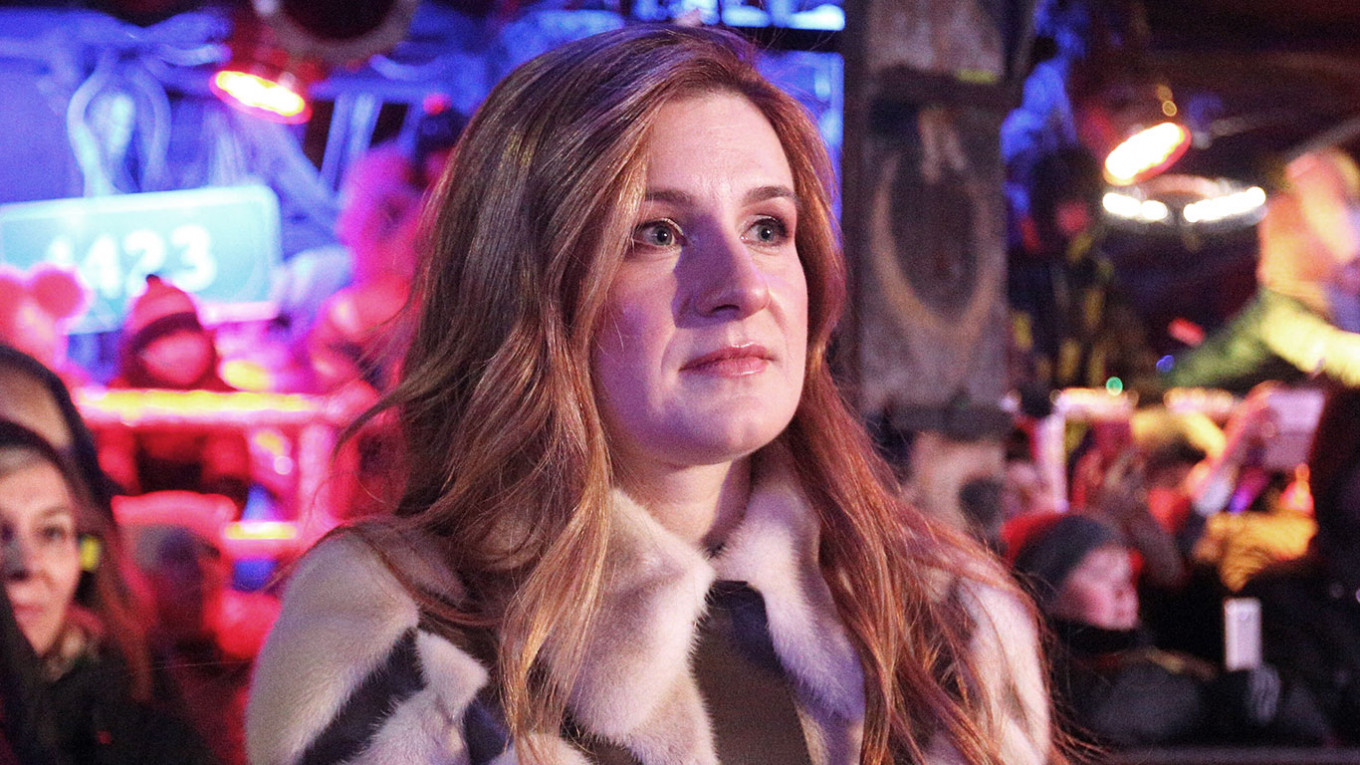
Several prominent Russian athletes won for United Russia, including hockey players Vladislav Tretyak and Vyacheslav Fetisov, boxer Nikolai Valuev, biathlete Anton Shipulin and figure skater Irina Rodnina.
Maria Butina, who was deported to Russia in 2019 after serving most of an 18-month sentence on charges of conspiring to act as a foreign agent in the United States, failed to gain enough votes on a United Russia party list in the Kirov region.
Observers note, however, that Butina — who campaigned for gun rights in the U.S. and attempted to persuade ex-President Donald Trump’s campaign to establish a back-door communications channel with Russia — can still become a Duma lawmaker if another United Russia winner gives up their seat.
Since her return to Russia, Butina has hosted a show on the state-run RT broadcaster, spoken out publicly about torture in American prisons and conducted a provocative interview with jailed Kremlin critic Alexei Navalny from his prison colony.
Nominal seats
Defense Minister Sergei Shoigu and Foreign Minister Sergei Lavrov also won nominal seats in the Duma after Putin tapped them to lead United Russia’s list of candidates to boost the party’s lagging approval ratings.
Reports over the past week have said the pair intend to give up their mandates and keep their cabinet posts, which would theoretically allow the likes of Butina to replace them in the Duma.
The chief doctor for Moscow’s coronavirus hospital Denis Protsenko and children’s ombudswoman Anna Kuznetsova also topped the United Russia ticket in the Duma race. Reports say consultations are ongoing to determine whether both will return to their day jobs or become federal lawmakers for the next five years.
Citing unnamed sources, Russia’s RBC news website reported Thursday that Kuznetsova will become the only one of United Russia’s top five candidates — whose portraits were plastered across billboards nationwide during the campaign — to take up her seat in the State Duma.
A Message from The Moscow Times:
Dear readers,
We are facing unprecedented challenges. Russia's Prosecutor General's Office has designated The Moscow Times as an "undesirable" organization, criminalizing our work and putting our staff at risk of prosecution. This follows our earlier unjust labeling as a "foreign agent."
These actions are direct attempts to silence independent journalism in Russia. The authorities claim our work "discredits the decisions of the Russian leadership." We see things differently: we strive to provide accurate, unbiased reporting on Russia.
We, the journalists of The Moscow Times, refuse to be silenced. But to continue our work, we need your help.
Your support, no matter how small, makes a world of difference. If you can, please support us monthly starting from just $2. It's quick to set up, and every contribution makes a significant impact.
By supporting The Moscow Times, you're defending open, independent journalism in the face of repression. Thank you for standing with us.
Remind me later.


